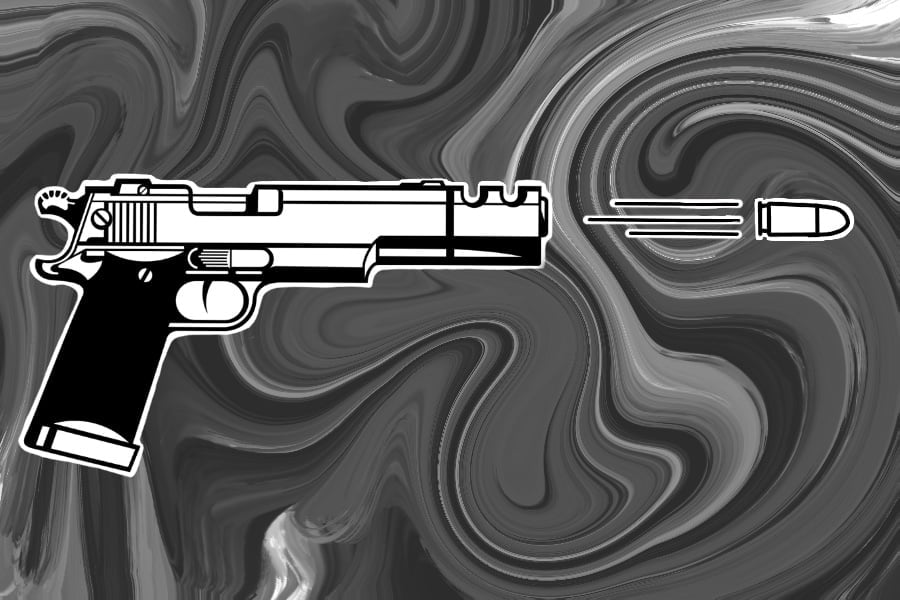Linguistics and computer science Prof. Rob Voigt presented his research on racial disparities in news coverage of gun violence Monday afternoon at Chambers Hall. The event, attended by about 50 people, was a part of the Fay Lomax Cook Fall 2024 Colloquium Series, which features researchers from IPR sharing their latest policy-relevant research.
Voigt said the project draws its findings from a large dataset of media representations of incidents of gun violence. He has been working on the project alongside Ruth Bagley, a first-year linguistics Ph.D. candidate; Su Burtner, scientific director at the Center for Neighborhood Engaged Research and Science; and sociology Prof. Andy Papachristos, the director of the Institute for Policy Research.
“We developed an ontology of linguistic features for this domain of interesting and potentially important areas of linguistic behavior that are salient in this domain of media conversations about gun violence,” Voigt said.
He described these linguistic features and a separate set of computational tools for measuring these newly developed features at scale.
Voigt said he and his team tested for disparity by comparing the racial composition of neighborhoods with gun violence to the coverage, content and framing in media stories.
“(The purpose of the project is to) propose that these disparities suggest both a bunch of interesting lines for future research … as well as a potential set of policy changes for media organizations to consider to minimize harm reporting on this important issue,” Voigt said.
Voigt closed his presentation by opening the floor for questions and comments to the audience members, including other Northwestern professors and students.
One of the first people to speak was psychology Prof. Sylvia Perry, who said her research on the intersection of social, developmental and health psychology investigates how racial bias awareness develops and affects the perception of stigmatized individuals.
Perry said she noticed that statistics around mass shootings are much higher than the way they’re talked about in the media. She added that there are very specific definitions about the number of people who are killed and whether an incident is categorized as a mass shooting in statistics for a given neighborhood.
“It may be that, for example, primarily in white neighborhoods or white places, these things are called mass shootings, when in reality, there are other incidents that meet the definition,” Perry said.
Voigt said the difference in the interpretation of whether an incident is classified as a mass shooting or not is probably one of the things that drives the coverage differences we see.
Voigt and his team are seeing this dynamic play out in their research, he added.
“When those (mass shootings) occur in white neighborhoods, they’re getting twice as much coverage,” Voigt said.
SESP Prof. Kirabo Jackson commented that there are two models of the world in terms of the media: one in which news outlets report on gun violence indiscriminately, regardless of the racial makeup of the neighborhood where they occur, and one in which reporters are more selective about the incidents they choose to report on and the language they use based on the racial composition of the community.
Jackson argued that the second model of the world, where media outlets adjust how they cover a given shooting based on the neighborhood it took place in, is more complex because the media influences the public perception of the shooting and those involved in it.
“I think that the policy recommendation is going to hinge on which model of the world we’re in, and using information about the news outlet might provide some insight into that,” Jackson said.
Voigt said the exploratory nature of the project requires the team to look at the interpretation of data through various lenses.
As they move forward, they will continue looking for ways to solidify these interpretations, Voigt said.
“One of the things that’s challenging about this project, about even just finalizing it and getting it out the door, is that it’s exploratory,” Voigt said.
Email: [email protected]
Related Stories:
— Institute for Policy Research hosts panel on 2024 election and threats to democracy
— UChicago professor decodes complexities of “crisis of mental health”
— Physics Prof. Stephon Alexander from Brown University unravels patterns of the universe with music






